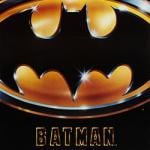“I WAS CURED ALL RIGHT.” An excellent piece on the last lines of novels. A few quotes, but look, just make with the clicking why doncha?
…The deepest rooted of last lines is the childhood one: “And they all lived happily ever after.” Unlike the first line of such stories, “Once upon a time,” it isn’t just a formula. It’s a reassurance that the result the story has achieved will remain in place even now the story-telling has finished. But more than that, it acknowledges what the story was about all along. Folk tales that end like that have, all along, been about happiness and challenges to it; the subject of the story is there in its last line.
The line, elegantly varied, is there at the end of most classic novels. Both Emma and Pride and Prejudice not only end with almost exactly that, but take great care to have the crucial word of the novel right at the end–“uniting them” in Pride and Prejudice, “union” in Emma. …
But there are two questions at stake here, in what Frank Kermode called “the sense of an ending”. One is how far a novelist believes in the end of a story, either through perfect happiness or complete catastrophe. The other is just the sense of a cadence; the sort of thing that sounds final, even if the novel’s concerns are provisional, incomplete. A novel with an unimpeachably happy ending may finish on an incomplete cadence, like Bleak House‘s “even supposing –“. Conversely, a novel where all the questions remain unanswered at the end can, more rarely, have a resoundingly firm cadence, just like Green’s Loving.
What has become rarer is a coincidence of the two. Novelists have become increasingly unlikely to bring a story to a final close with a final-sounding cadence. …Nor is a modern novel quite imaginable that ends, quite unironically, with the peals of happiness at the end of many Victorian novels, and it’s striking that modern criticism has made strong efforts to find ambiguities in the closing assertions of Great Expectations and, much less convincingly, Wuthering Heights.
You can certainly find those resounding final sentences in modern novels–none more resounding, surely, than the end of Ulysses, with its thundering repetitions of the word “Yes”, like the end of a Beethoven symphony. But, philosophically, we’ve grown more accustomed to doubt and uncertainty. We like ambiguous endings; more than that, we like cadences that sound uncertain.
whole thing
Link via A&L; Daily. Send me any last-line thoughts you have!











